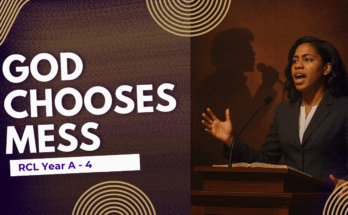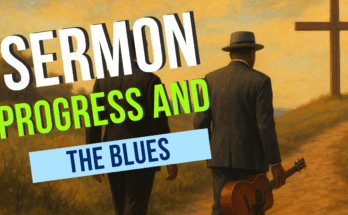As an Amazon Associate I earn from qualifying purchases.
I have written on the topic of Celebration in preaching in other posts. This is the time of the sermon where the reality of the Gospel hits the congregation in such a real way that the congregation experiences the Gospel. Frank Thomas notes that the people will only remember that which they celebrate.
Whooping and Cluster-Term Analysis
I have begun a study of the sermons of C. L. Franklin. What is interesting about some of these sermons is what happens in the celebration or the whooping component of the sermon. One of the most striking things is the reduction of sermonic complexity in the celebration. One of the rhetorical tools I used to analyze the sermon is “Cluster Criticism.” In cluster Criticism we find the important terms and synonyms of these important terms and chart them throughout the sermon.
For example, in the sermon “Pressing On” which can be found in the book Give Me This Mountain: Life History and Selected Sermons and the audio cassette Legendary Sermons, Franklin uses “fighting a good fight,” “Keeping the faith,” and “finishing” to encode the idea of “pressing on” in the sermon. When one is “pressing on,” according to Franklin, one is “joining the army” and “pressing towards the mark.” one is “pressing on” to many “good things” including “higher ground”, “upward way” and “new heights.”
Multiple Synonyms for Key Term
Franklin uses many terms during the sermon to help the congregation to understand what he means by “Pressing on.” However when it is time for the whoop. When it is time for celebration, Franklin eliminates all of these added words and only uses one term “running the race” to encapsulate all of those ideas. He celebrates the truth of “pressing on” and the complexity of the idea of “pressing on” but zeros in on one term “running” and hammers that one term home.
Reduce Complexity in the Whoop
When we are preaching, we must include complexity in our sermons. We must describe and define the idea we are presenting in many different ways. We even must consider possible objections to the idea, but when it is time to celebrate, you should have already laid a solid ground work and thus should just take one term to encapsulate it all.
When you do this, you provide a hook for the people to remember the whole sermon. In addition, you eliminate a lot of things that might detract from the core gospel theme in the “celebration” if you do not hammer this one point. So in this sermon, Franklin eliminates rhetorical complexity in the celebration and thus provides a strong finish to a solid sermon.
Amazon and the Amazon logo are trademarks of Amazon.com, Inc, or its affiliates.







